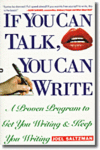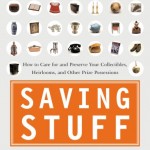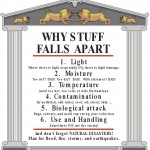Many people love the idea of writing, the idea of being a writer, but when it comes to sitting down to write, well, that’s a different story. That describes most people who write at least some of the time, but it describes a trait for many that has the potential of crushing any aspirations to write anything at all. It is usually simply another manifestation of fear. As with many things in life, fear prevents us from moving forward and sometimes from taking the single step necessary to move forward. In writing, we may fear actually putting anything on paper because to put it on paper means we may have (God forbid) written something bad. We may be judged! Without moving forward and acting on our desires to write we can always be “getting ready” to write that novel, play, or short-story. That’s why a journal, that nobody else will read, is a great starting project for any would-be or “stuck” writer. With a journal, there’s no need to worry about anything other than getting words on paper.
 At some point everyone who wants to truly write – must write. Many find the fear of not being able to express ourselves “properly,” can be immobilizing. This is where my favorite writing book of all-time comes in. If you are just beginning to write, beginning to want to write, or have written before but enjoy reading about writing – here’s a can’t miss book: If You Can Talk, You Can Write by Joel Saltzman. The premise of the book is as the title says, if you can adequately talk in a casual or social setting, you can write! The idea is to get the words on paper. Talk on paper. Believe it or not, some very accomplished writers find their voice by writing their novels as if they were writing a letter and telling a story to a friend. In fact, that’s exactly what you should be doing – just talking on paper. There is a saying, “Compose first and worry later.” Beautiful. If you want to write, you must write, and remember that if you can talk, you can indeed write!
At some point everyone who wants to truly write – must write. Many find the fear of not being able to express ourselves “properly,” can be immobilizing. This is where my favorite writing book of all-time comes in. If you are just beginning to write, beginning to want to write, or have written before but enjoy reading about writing – here’s a can’t miss book: If You Can Talk, You Can Write by Joel Saltzman. The premise of the book is as the title says, if you can adequately talk in a casual or social setting, you can write! The idea is to get the words on paper. Talk on paper. Believe it or not, some very accomplished writers find their voice by writing their novels as if they were writing a letter and telling a story to a friend. In fact, that’s exactly what you should be doing – just talking on paper. There is a saying, “Compose first and worry later.” Beautiful. If you want to write, you must write, and remember that if you can talk, you can indeed write!
Update July, 2010: The book is out of print, but available from many sellers – used – at Amazon.


